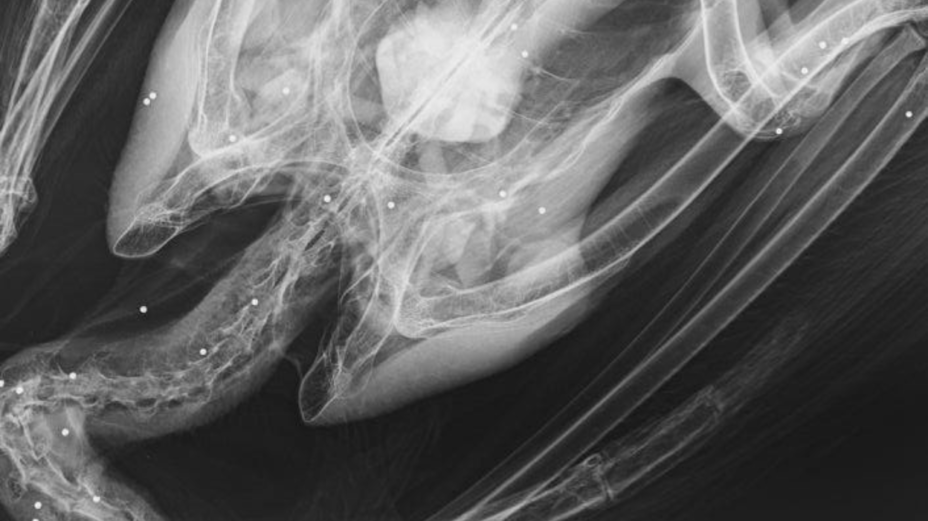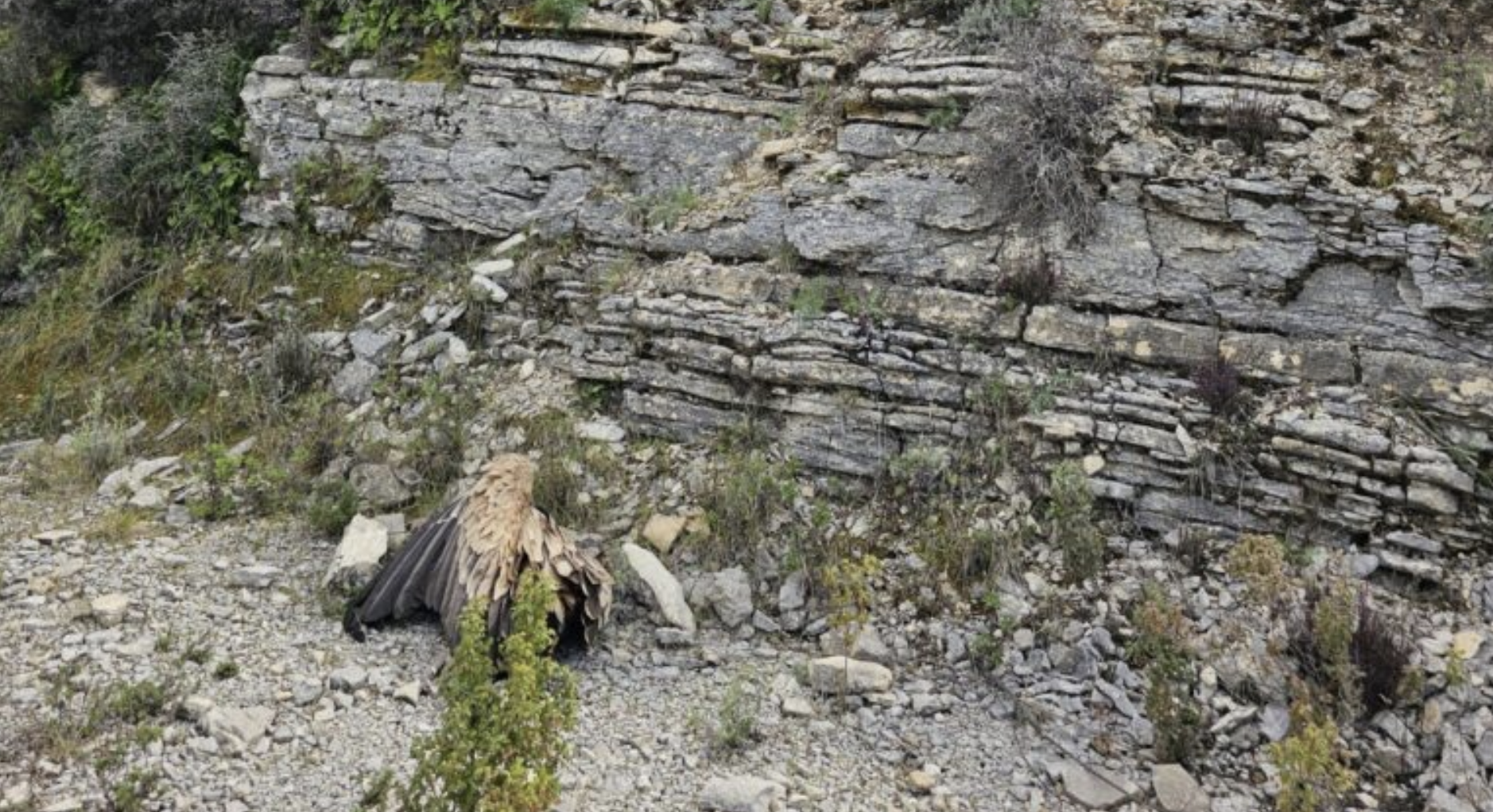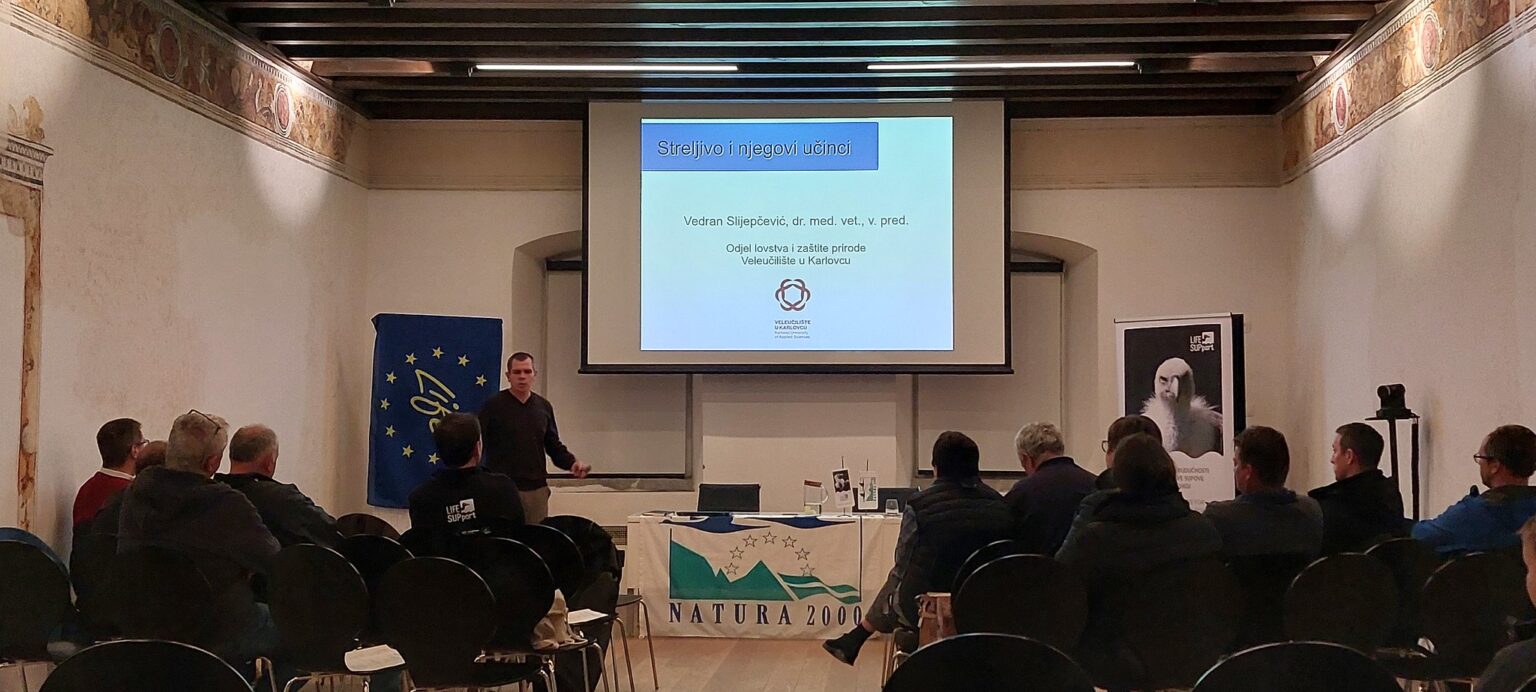From 15 February 2023 onwards, the use of lead ammunition became illegal in and around wetlands across all the EU 27 countries, Liechtenstein, Iceland and Norway. The ban on lead ammunition, a toxic compound seriously affecting nature, wildlife and human health, is a meaningful step forward to protect the wildlife that falls victim to lead poisoning every year. But the total phase-out of lead ammunition for hunting continues to be a priority to help restore the populations of vultures and other scavenging species.
The dangerous impacts of lead ammunition on wildlife
Over centuries, lead has been used in ammunition for hunting, fishing and shooting sports. Lead cartridges consist of hundreds of rounded pellets that contaminate both soil and water. According to ECHA – the European Chemicals Agency, 44 000 tonnes of lead are annually dispersed into the EU environment, putting at risk at least 135 million birds each year from primary ingestion of lead gunshot, 14 million birds from secondary ingestion and 7 million from the ingestion of lead fishing tackle.
Lead projectiles dispersed in the environment are particularly problematic for waterbirds that ingest the pellets mistaking them for small stones known as ‘grit’ that help their digestion. As for vultures and facultative scavengers, they are directly poisoned by consuming hunted carcasses that contain ammunition fragments or indirectly from lead incorporated by the animals on which they feed. This results in lethal and sub-lethal toxicity, a silent threat causing long-term population declines that are difficult to detect. In Europe, such mortality rates hamper decades of conservation efforts and funding aimed at restoring raptor and vulture populations.

In some countries and regions worldwide, the use of lead ammunition has already been banned. In the USA, the ban was instrumental in reducing lead exposure in vultures and raptors; Denmark and the Netherlands banned the use of lead gunshots decades ago, and partial bans occurred in Spain and Germany (Bavaria).
New EU regulation bans the use of lead ammunition in and around wetlands
At the beginning of 2021, the European Parliament adopted the recommendations of ECHA to forbid the use and carrying of lead ammunition around wetlands. Finally, after granting a 2-year transition period to EU countries, on 15 January 2023, the regulation that prohibits the discharging and carrying of lead shots within 100 metres of wetlands took full effect. This means that non-toxic, lead-free ammunition must be used instead. If a person is found carrying a gunshot in or within 100 metres of wetlands while out shooting or as part of going shooting, the shooting concerned shall be presumed to be wetland shooting unless that person can demonstrate that it was some other type of shooting.
Now, all EU 27 Member states are requested to enforce the regulation to ensure compliance and attribution of the respective legal consequences. Moreover, this restriction allows Member States to ban lead gunshots in all areas if 20% or more of the country’s territory is wetlands. In this case, the restriction applies after 15 February 2024.
We need to protect vultures and our societies from lead ammunition
As the primary consumers of carrion in many ecosystems, vultures play a key role in maintaining nutrient recycling processes, regulating populations of competing scavengers and likely reducing the development and spread of certain diseases, providing valuable ecosystem services to humans. In addition, in the European context, vultures remove livestock carcasses from both intensive and extensive farming systems, reducing the financial costs and carbon footprint that would be required to dispose of the carcasses in their absence.
Lead ammunition also poses a real risk when it comes to public health. Hunters that feed their families or sell game meat through food outlets can unintentionally poison people. The ingestion of lead can cause adverse effects on all major body systems. Neurodevelopmental risk (IQ reduction) in children and cardiovascular effects and nephrotoxicity in adults have been reported. Recent research estimated that the continued use of lead ammunition associated with impacts on wildlife, people and the environment, costs €383 million–€960 million per year across the EU.
Phasing out the use of lead ammunition across all EU landscapes is thus a fundamental step towards restoring predator and scavenger populations and the ecosystem services that they provide across Europe. The long-term economic, environmental and human health benefits of restricting the use of lead ammunition for hunting and shooting activities will surely outweigh the costs.
A total phase-out of lead ammunition in the EU is a possibility
Back in July 2019, the European Commission requested ECHA to investigate the use of lead in ammunition. A public consultation followed in 2021, where many NGOs, including the Vulture Conservation Foundation, contributed with a set of arguments to support the ban of lead in gunshots outside of wetlands, in any terrain and in fishing tackle. Lead-free gunshot alternatives, such as steel, bismuth or tungsten, were identified in the EU Commission Regulation 2021/57 of 25, which highlights their availability, technical feasibility and affordable prices, with a lower hazard and risk profile to human health and the environment.
The most recent updates were in November 2022, when the ECHA’s scientific committees supported limiting lead use for outdoor shooting and fishing. Furthermore, recent news shared by DG-Environment assures that ECHA’s scientific committees will transmit their opinion to the European Commission within the coming months. After the scientific review of the proposal is finished, the Commission will prepare a legislative proposal and submit it to a vote by the EU Member States in the REACH Committee. Before any restriction can be adopted, the European Parliament and Council will review and examine it thoroughly.
Sign up for our monthly email newsletter to stay tuned with the process regarding the additional restrictions on lead ammunition in the EU.



